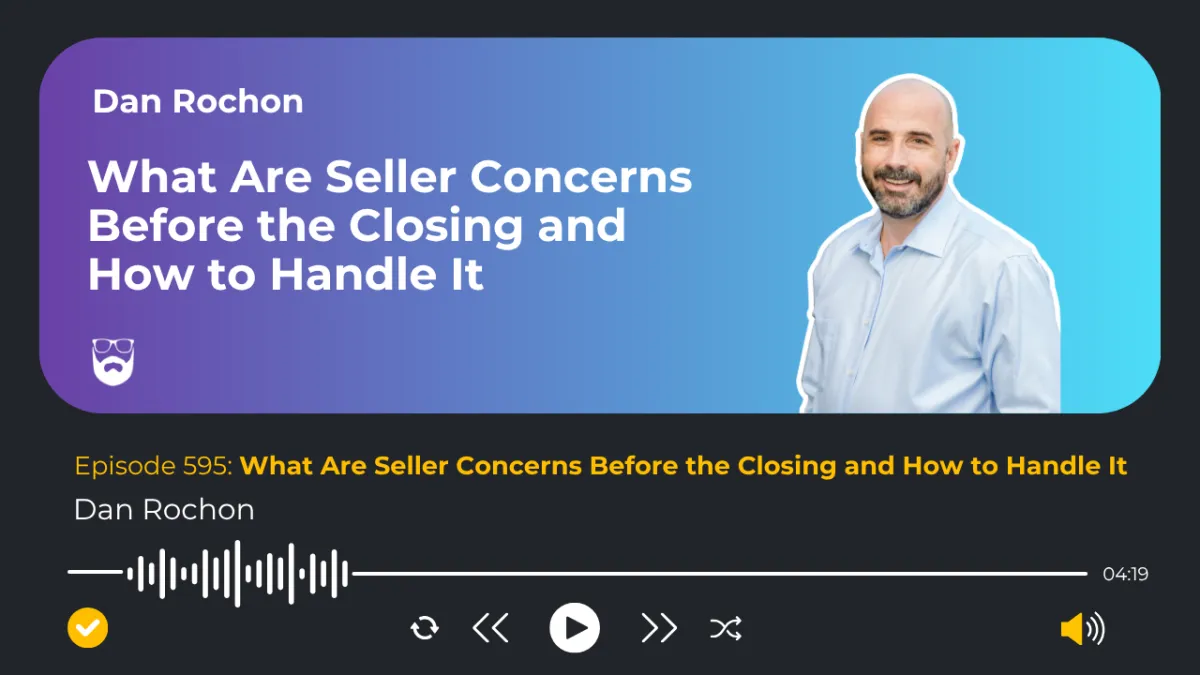
What Are Seller Concerns Before the Closing and How to Handle It
"When you start predicting what your clients are thinking, they won’t even realize why they trust you so much—they’ll just know you’re the one who gets it right."
- Dan Rochon
Episode Summary
When you’re days away from closing, emotions start to rise—especially for the seller.
Even if everything looks good on paper, there’s still that quiet voice in their head asking:
Is this really happening?
Are we good to go?
What happens if the buyer doesn’t show up tomorrow?
These thoughts aren’t always spoken, but they’re there. As an agent, your job is to anticipate those unspoken worries before they become full-blown stress.
Timing Is Everything
Here’s where most agents make a critical mistake: they try to address these concerns too early.
If you start reassuring your seller two weeks before closing, you’re actually playing with fire.
Because if anything unexpected happens after you’ve made your promises, guess what?
You’re fired. Guaranteed.
Instead, here’s the right approach:
Wait until three or four days before closing to have that conversation.
A good rule of thumb: do it after the Closing Disclosure (CD) goes out.
At that stage, the deal is practically done, and your reassurance has real power.
By waiting until this point, you’re providing certainty when it matters most—right when anxiety peaks but before the final signatures hit the paper.
What Sellers Are Really Thinking
Beyond wondering if the buyer will show up, most sellers are fixated on two main questions:
When am I getting my money?
How am I getting my money?
Different states handle this process in different ways, but no matter where you are, it’s your job to make sure they understand what to expect.
Clarity reduces fear—and when you remove fear, you create trust.
How to Build Trust Before They Ask
The most powerful thing you can do is to bring up their concerns before they do.
Here’s why this works:
It shows confidence and control.
It builds credibility.
It creates the feeling that you “get” them.
When clients feel like you’re reading their mind, they’ll describe you later as “fantastic” or “extraordinary.”
They may not even realize what you did differently—they’ll just know you made the process feel effortless.
That kind of emotional connection turns one-time clients into lifelong advocates who happily refer you to their friends and family.
Final Thoughts
When you handle seller concerns the right way—at the right time—you position yourself as the professional who’s always one step ahead.
So remember:
Don’t rush the reassurance.
Anticipate their questions.
Be the calm voice in the chaos.
That’s how you make it to the closing table without stress… or getting fired.
Ready to Master These Conversations?
Take your communication skills to the next level with my book, Teach to Sell.
Inside, you’ll discover how to turn simple conversations into powerful connections that lead to more closings, more referrals, and more confidence in every deal.
Get your copy today and learn how to Teach to Sell—the right way.
